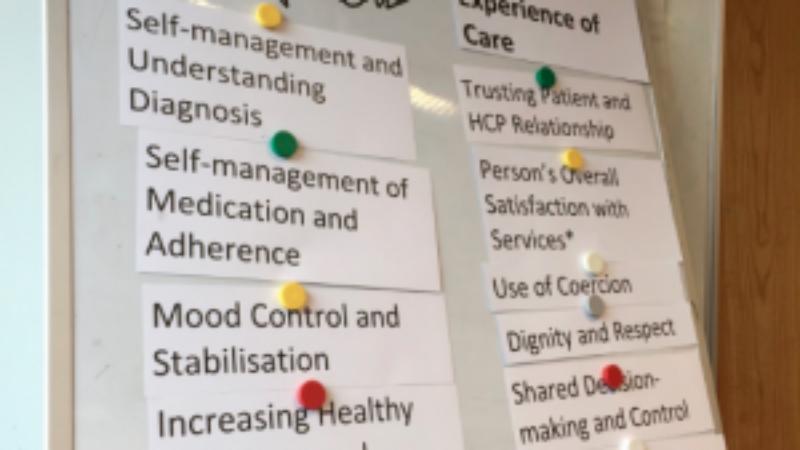Project overview
There is currently a lack of treatment options for people with bipolar who also experience depression.
The ASCEnD (Aripiprazole/Sertraline Combination: clinical and cost-Effectiveness in comparison with quetiapine for the treatment of bipolar Depression) study aims to understand whether the combination of the antipsychotic aripiprazole and an antidepressant called sertraline improves symptoms of depression in adults with bipolar.
It will take place over four years in up to ten different mental health NHS trusts across England.
Participants will be randomly selected to receive either a sertraline/aripiprazole combination or the antipsychotic quetiapine. Some participants will have the opportunity to be interviewed about their experiences of taking part in the study.
The study is led by Newcastle University and funded by the National Institute for Health Research (NIHR) Health Technology Assessment (HTA) programme.


Project details
It is estimated that between 1 and 2% of people in the UK have Bipolar, however, very little is known about using antidepressants in people with this diagnosis.
Depression is also common in bipolar but current recommended treatments are often only prescribed by psychiatrists. This means that some people cannot access these medications and, if they do, they may experience unpleasant side effects.
Therefore, additional treatment options are needed.
Sertraline is a common antidepressant, while aripiprazole is an antipsychotic that helps ‘boost’ the effects of sertraline. Both of these medications can be prescribed by GPs, but at present it is not known whether they are useful to people experiencing depression in bipolar.
The study will see whether, in comparison to quetiapine, the combination of sertraline and aripiprazole is safe and effective in treating depression in adults with bipolar.
If this is demonstrated, sertraline and aripiprazole may emerge as a new treatment for bipolar depression that can be started by GPs, thereby reducing delays to treatment.
McPin will facilitate the service user involvement for this study through a Lived Experience Advisory Panel (LEAP) – a group of people with bipolar and carers.
A senior service user researcher at McPin is the PPI Co-ordinator for the study and co-PPI lead with Thomas Kabir, former deputy director at McPin, and a co-applicant on the study.
The involvement in the study will also be supported by the charity Bipolar UK.
Please email [email protected] for more information.
You can also find out more on the study website.
Related blogs
Related projects
Work with us
We are always excited to hear from others who want to collaborate on mental health research. From delivering peer research to helping you with public involvement strategies and providing training, get in touch to chat.







